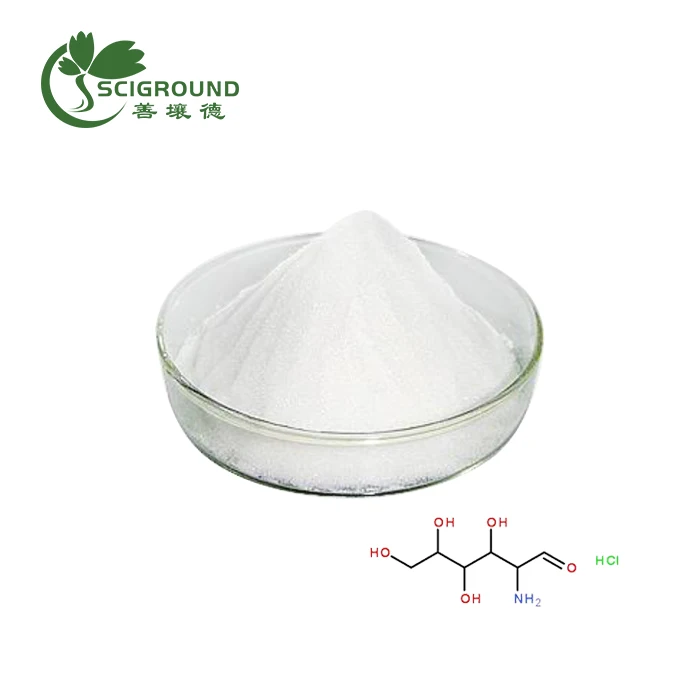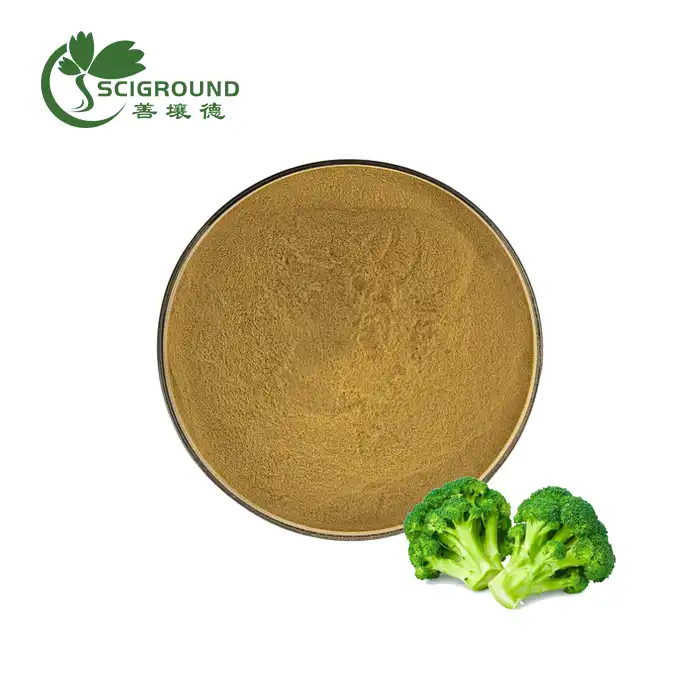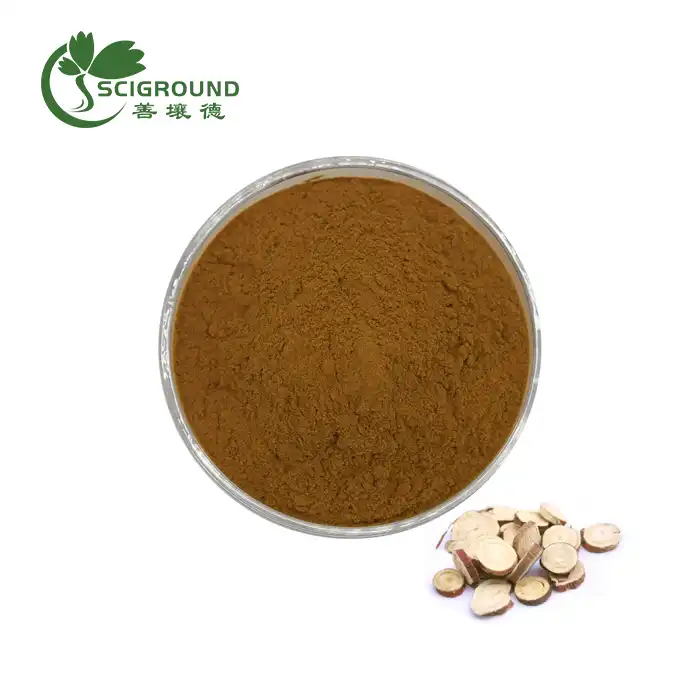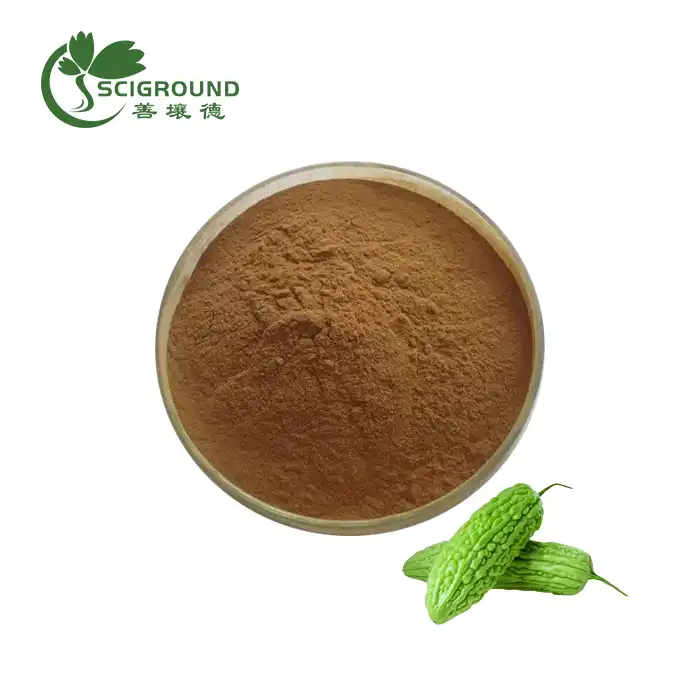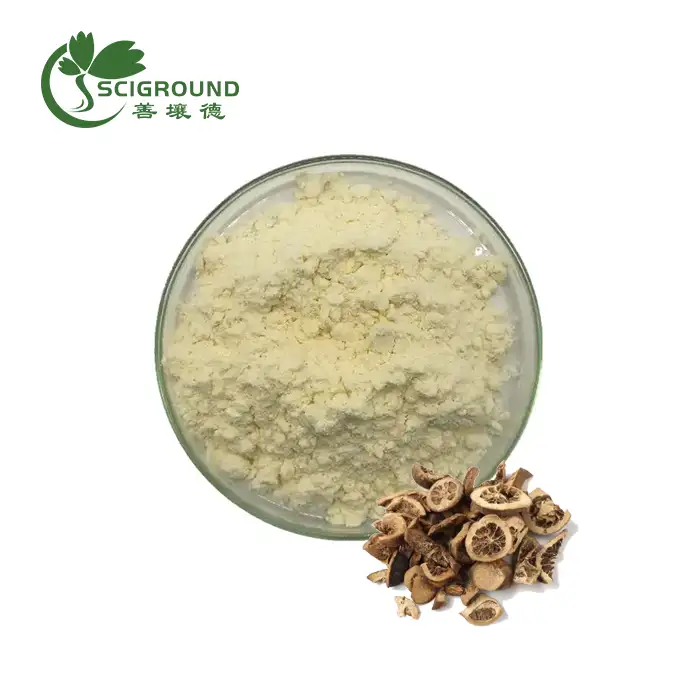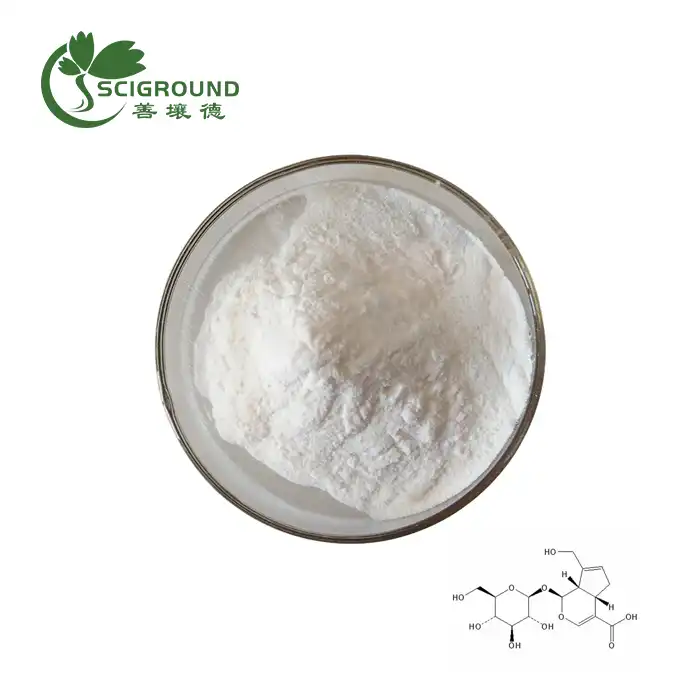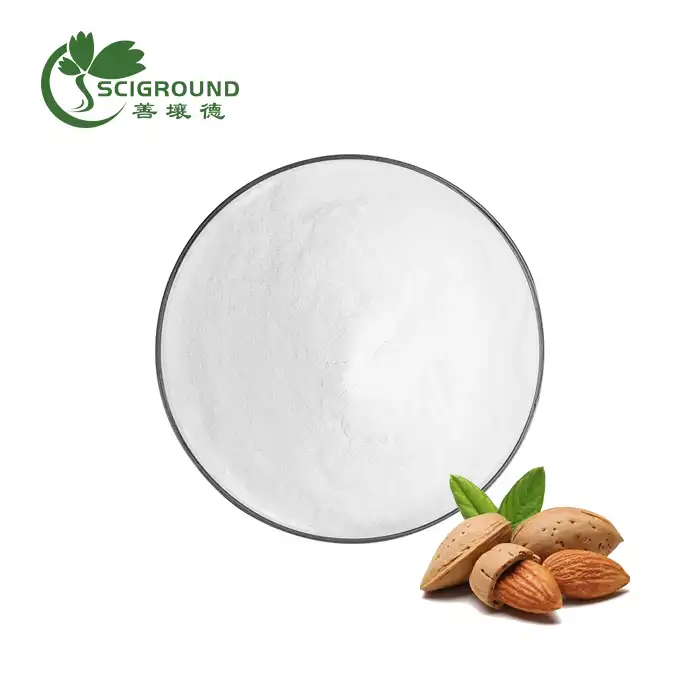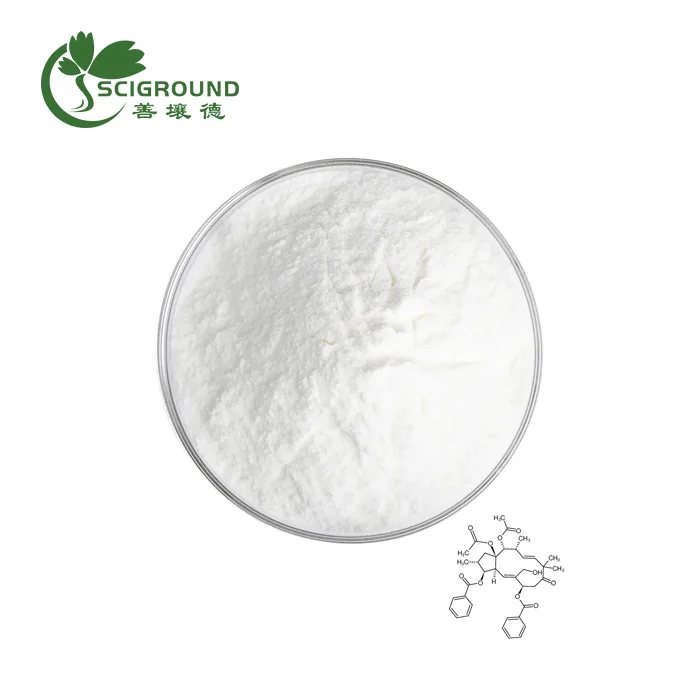What Does Vitamin B5 Do
Pantothenic acid powder, better known as Vitamin B5, stands as a crucial nutrient essential for overall health and vitality. This exploration will delve into the depths of Vitamin B5's significance, detailing its roles within our bodies, the requisite daily intake, food sources, and the myriad advantages it bestows upon our skin, hair, energy levels, and more. Discover why this seemingly unassuming B vitamin holds such paramount importance!

What is Vitamin B5?
Vitamin B5 powder constitutes one of the eight vital B vitamins, pivotal for converting food into energy and aiding in hormone and cholesterol production. Its specific contribution lies in the formation of coenzyme A (CoA), an indispensable molecule facilitating the extraction of energy from fats, proteins, and carbohydrates.
Moreover, Vitamin B5 actively participates in generating fatty acids, cholesterol, and key neurotransmitters that regulate mood. Its involvement in heme synthesis, a constituent of hemoglobin vital for oxygen transportation by red blood cells, further underscores its significance.
Discovered by Roger J. Williams in 1933, Vitamin B5, in its pure state, manifests as a water-soluble, crystalline white powder. Its synergy with pantothenic acid engenders the creation of coenzyme A, prompting its alternate nomenclature, pantothenic acid.
Natural sources of Vitamin B5 abound in eggs, meat, vegetables, cereal grains, legumes, and milk. Additionally, numerous over-the-counter supplements provide Vitamin B5 for convenient consumption.
How Much Vitamin B5 Do You Need Each Day?
The recommended daily intake of vitamin B5 depends on your age and sex. The average recommended daily amounts are:
Infants 0-6 months - 1.7 mg
Infants 7-12 months - 1.8 mg
Children 1-3 years - 2 mg
Children 4-8 years - 3 mg
Children 9-13 years - 4 mg
Adolescents 14-18 years - 5 mg
Adults 19+ years - 5 mg
Pregnant women - 6 mg
Breastfeeding women - 7 mg
As you can see, vitamin B5 needs increase as we age, with more required during pregnancy and breastfeeding to support fetal and infant development. Consuming adequate vitamin B5 is vital, but toxicity and overdose are unlikely since excess amounts are flushed from the body.

Food Sources of Vitamin B5
Many foods contain vitamin B5, both plant and animal sources. The best dietary sources of vitamin B5 include:
Meats - Beef, lamb, liver, salmon, tuna
Whole grains - Brown rice, oatmeal, whole wheat bread
Nuts and seeds - Sunflower seeds, peanuts, pistachios
Vegetables - Mushrooms, potato, broccoli, spinach, cabbage
Fruits - Avocados, oranges, tomatoes
Legumes - Lentils, dried beans, soybeans
Dairy - Milk, cheese, yogurt
Eggs
As you can see, vitamin B5 is readily available in a balanced diet. Just two servings of meat, fish, poultry, or legumes provides over half your daily needs. Pairing lean protein with whole grains or fresh produce will help you meet your requirement with ease.
If your diet is limited and lacks adequate vitamin B5 sources, taking a multivitamin or B-complex supplement can help fill nutritional gaps. Speak with your healthcare provider to determine if supplementation may benefit you.
Benefits and Uses of Vitamin B5
While all B vitamins are indispensible for turning food into cellular energy and supporting essential functions, vitamin B5 specifically offers a wide array of benefits:
Cellular Energy Production
As mentioned, b5 powder enables CoA production, which allows us to derive energy from carbohydrates, fats, and proteins. It literally helps power every cell in the body!
synthesizes Cholesterol
Vitamin B5 is required to synthesize cholesterol, which is essential for creating vitamin D, certain hormones, and maintaining cell membrane integrity.
Creates Neurotransmitters
Vitamin B5 helps create key neurotransmitters like serotonin and dopamine. These brain chemicals regulate mood, appetite, sleep, motivation, and cognitive function.
Supports Adrenal Function
The adrenal glands require ample B5 to produce certain hormones related to stress response, sex characteristics, and heart function.
Aids Hemoglobin Production
By assisting in the creation of heme, vitamin B5 helps ensure red blood cells can deliver oxygen efficiently to all tissues.
Promotes Healthy Skin
Vitamin B5 applied topically helps treat acne and moisturize skin. Orally, it assists wound healing and guards against infection.
Supports Hair Health
Pure vitamin B5 promotes circulation to the scalp and provides nourishment to follicles, helping hair grow strong and shiny.
Boosts Immunity
B5 enables white blood cell production and supports the conversion of nutrients into energy needed to fuel the immune response.
As you can see, vitamin B5 works hard to support many essential bodily processes! Next, we'll look closer at its benefits for skin and hair.

What Does Vitamin B5 Do for Skin?
Vitamin B5 provides several benefits for promoting healthy, radiant skin:
Treats Acne
Research shows taking high dose vitamin B5 orally and applying it topically helps treat mild to moderate acne. It is thought to decrease oil production and skin inflammation.
Improves Skin Hydration
Vitamin B5 helps skin maintain its moisture barrier by supporting production of healthy fats in skin cells. Dehydrated skin may be low in B5.
Helps Wound Healing
B5 aids tissue repair and new skin growth. This helps heal wounds, burns, and abrasions more quickly.
May Reduce Skin Discoloration
Early research indicates sufficient vitamin B5 intake may help minimize uneven skin pigmentation and melasma.
Protects Skin Barrier
Vitamin B5 strengthens the skin barrier, which protects underlying tissue from infection, toxins, and sun damage.
Slows Signs of Aging
By hydrating skin, speeding wound healing, and protecting against oxidative damage, vitamin B5 may help reduce fine lines, wrinkles, and dullness.
When applied topically, look for vitamin B5 combined with other beneficial ingredients like hyaluronic acid, niacinamide, and soothing botanicals. Orally, be sure to get adequate B5 daily through food sources and supplementation if needed.

What Does Vitamin B5 Do for Hair?
In addition to benefiting skin, vitamin B5 also supports optimal hair growth and shine in the following ways:
Stimulates Circulation
Vitamin B5 dilates blood vessels to enhance microcirculation to the scalp. This nourishes hair follicles.
Provides Essential Nutrients
B5 supplies essential nutrients that get incorporated into the structure of hair strands to build strength and resilience.
Balances Sebum Production
By regulating oil gland secretion, vitamin B5 helps keep scalp and hair balanced—not too dry or too oily.
Slows Graying Process
Melanin gives hair its pigment. Vitamin B5 helps melanin synthesis in hair follicles, reducing graying.
Reduces Hair Loss
Adequate B5 intake enables optimal hair growth cycles and minimizes excess shedding or thinning.
Improves Shine
Vitamin B5 supplements contribute to hydrated, smooth hair cuticles that better reflect light for enhanced shine.
Repairs Damage
This vitamin helps repair damage from chemical treatments, heat styling, and sun exposure to restore health.
To boost hair growth and luster, be sure to consume enough vitamin B5 daily through a balanced diet. You can also take a B-complex vitamin or use topical hair treatments that contain panthenol, a derivative of vitamin B5.
Vitamin B5 FAQs
Still have questions about this versatile vitamin? Below are answers to some frequently asked questions about vitamin B5:
Can you take vitamin B5 everyday?
Yes, vitamin B5 is safe to consume daily since it's water-soluble and any excess is excreted in urine. 5 mg per day is optimal for adults. Higher doses have been used safely for limited periods.
What are signs of vitamin B5 deficiency?
Deficiency is rare but symptoms may include numbness, tingling, fatigue, headaches, nausea, abdominal cramps, mood changes, muscle spasms, and poor coordination.
What are food sources of vitamin B5 for vegetarians?
Good plant-based sources include mushrooms, potatoes, spinach, broccoli, whole grains, nuts, seeds, avocados, soy-based foods, and legumes like lentils and beans.
Can vitamin B5 cause acne?
In very high doses, B5 may worsen acne for some. But moderate supplementation more commonly helps treat acne. Always discuss dosing with your dermatologist.
Does vitamin B5 help with weight loss?
Some early studies suggest B5 supplements may help reduce body fat. But more research is needed to determine effects on weight loss.
Is vitamin B5 safe during pregnancy?
Yes, B5 is vital during pregnancy and 6 mg daily is recommended to support growth and development. Always check with your OB-GYN before supplementing.
Who may need extra vitamin B5?
Those who abstain from animal products, drink excess alcohol, have chronic stress or bowel issues, take certain medications, or smoke may benefit from more B5. Consult your doctor if concerned.
The Takeaway
Vitamin B5, or pantothenic acid, is a water-soluble nutrient that assists in unlocking energy from food to fuel your body’s cells and organs. It also helps make essential fatty acids, neurotransmitters, and red blood cells.
Though widespread deficiency is uncommon, getting at least 5 mg of vitamin B5 daily supports energy, mood, skin health, hair growth, and beyond. Meat, eggs, dairy, legumes, and whole grains provide B5. Supplements may benefit those with increased need or difficulty absorbing nutrients.
In summary, vitamin B5 is an unsung hero helping power countless processes that maintain health. Be sure to consume enough of this critical nutrient each day to feel your best. Your body will thank you!
References:
Reynolds RD. Bioavailability of vitamin B-6 from fortified cereal-grain products and supplements in humans. American Journal of Clinical Nutrition. 1985 Aug;42(2):421-9.
Lanska DJ. Historical aspects of the major neurological vitamin deficiency disorders: the water-soluble B vitamins. Handb Clin Neurol. 2010;95:445-76. doi: 10.1016/S0072-9752(08)02130-1.
Hillstrom L, Yacapraro K. Vitamin B1, B2, B3, B5, B6, B7, B9, and B12. In: Stargrove M, Treasure J, McKee D, editors. Herb, Nutrient, and Drug Interactions: Clinical Implications and Therapeutic Strategies. 1st ed. St. Louis, MO: Mosby Elsevier; 2008:455-506.
Challem J, Macher D. Pantothenic Acid. In: Brown M, editor. The Vitamins. 2nd ed. New York, NY: Academic Press; 1998:51-64.
Plesofsky-Vig N. Pantothenic Acid. In: Shils M, Olson J, Shike M, Ross C, editors. Modern Nutrition in Health and Disease. 9th ed. Baltimore, MD: Williams & Wilkins; 1999:432-438.
Wittwer J, Rubio-Aliaga I, Hoefig CS, et al. Metabolomics of prolonged fasting in humans reveals new catabolic markers. Metabolomics. 2017;13(8):91. doi:10.1007/s11306-017-1209-0
Kleinman RE. Pediatric Nutrition Handbook. 5th ed. Elk Grove Village, IL: American Academy of Pediatrics; 2004.
Bodnar LM, Wisner KL. Nutrition and depression: implications for improving mental health among childbearing-aged women. Biol Psychiatry. 2005 Nov 1;58(9):679-85.
ABOUT AUTHOR

Celine Xu is a botanist with over 15 years of experience researching and developing plant extracts for nutritional and pharmaceutical applications. She leads an R&D team focused on identification, cultivation and extraction of medicinal plants. Celine Xu earned a Ph.D. in Plant Biology from UC Berkeley and has authored numerous articles in peer-reviewed journals about the health benefits of specific phytochemicals. She frequently speaks at industry conferences about new developments in plant extract research. Celine Xu is dedicated to advancing the scientific understanding of how targeted plant compounds can be used to improve human health.
Related Industry Knowledge
- how to make dandelion root extract
- What foods are high in L-ornithine?
- Does L-theanine really work for anxiety?
- Inulin vs Erythritol
- Can you take vitamin D with quercetin?
- Is Soy Lecithin Safe for Skin?
- The Power of Vitamin Niacinamide B3 Powder: Exploring the Latest Research and Benefits
- Embracing the Power of Corn Silk Extract Powder
- What is kudzu powder good for?
- What Is American Ginseng?
